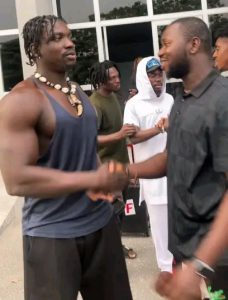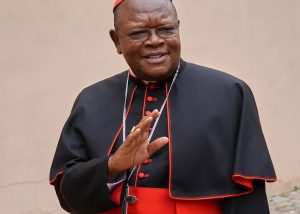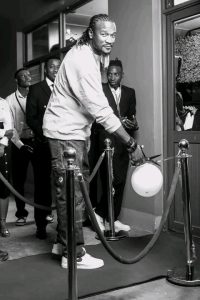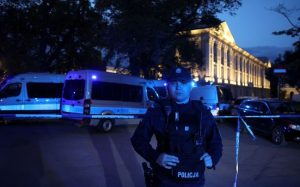South Africa’s radical opposition rocked by high-profile defections
4 min read
South Africa’s radical opposition party, the Economic Freedom Fighters (EFF), is grappling with a series of high-profile defections that have shaken its leadership and raised questions about its future direction. The latest blow to the party came when Dali Mpofu, a prominent lawyer and former EFF chairperson, announced his departure to join uMkhonto weSizwe (MK), a political movement aligned with former President Jacob Zuma.
Mpofu’s decision, which he described as the result of “soul-searching,” has added to the mounting challenges faced by the EFF, which has struggled to maintain its momentum following a disappointing performance in the May 2024 general election. The party, led by firebrand Julius Malema, had hoped to rise from South Africa’s third-largest political force to second, but instead, it dropped to fourth place, ceding ground to MK.
A Shift to MK and Political Ambition
Mpofu’s defection to MK is significant, as the group is closely associated with Zuma, who spearheaded the formation of the party in 2023. Zuma’s return to politics after serving a prison sentence in 2021 for contempt of court has energized MK, which shares many of the EFF’s policies, including the expropriation of land from white farmers and state control of key industries like mining and banking.
South African political analyst Sandile Swana suggested that Mpofu’s decision was motivated by political ambition, with MK offering him a quicker path to power. “MK is substantially bigger than the EFF right now,” Swana noted. “If someone is seeking political influence, they might find it faster within MK.”
Mpofu’s defection follows a string of departures from the EFF, including those of Malema’s deputy, Floyd Shivambu, and two other lawmakers, Mzwanele Manyi and Busisiwe Mkhwebane. While these exits have raised alarms within the party, some analysts argue that such “pruning” could ultimately benefit the EFF, allowing it to shed members who were not fully committed to its cause.
Malema’s Response and Internal Struggles
In response to Mpofu’s departure, Malema downplayed its significance, stating that he respected Mpofu’s decision. However, the situation became more complicated when Shivambu, once Malema’s closest ally, publicly welcomed Mpofu to MK, praising the party’s “superior ideological, political, and organizational capacity.” This move by Shivambu, who has been vocal in his criticism of Malema, deepens the rift within the EFF and raises questions about the stability of Malema’s leadership.
Mpofu, a former ANC member who joined the EFF in 2013, had held significant positions within the party, including chairperson from 2014 to 2019. After stepping down from his leadership role, Mpofu continued to serve as a legal representative for the EFF and later for Zuma, supporting the former president in his legal battles with the government.
Mpofu’s decision to join MK was not unexpected, as he had reportedly been in discussions with Zuma about forming a new political party for the past two years. He claimed that he had been involved in discussions around MK’s formation while still with the EFF but denied any allegations of being a “double agent.”
The Tension Between Malema and Zuma
The defection highlights the growing divide between the EFF and Zuma’s faction. While Malema and Zuma have a shared history, having both been expelled from the ANC at different points, their political visions are increasingly divergent. Zuma’s influence continues to grow within MK, while Malema faces criticism for his leadership style, which some within the EFF view as authoritarian.
Ongama Mtimka, a South African political analyst, noted that many EFF members are dissatisfied with Malema’s leadership and believe he has already chosen his successors within the party. “There is a rejection of the dictatorial style of Julius Malema in terms of leadership succession,” Mtimka explained. This discontent could lead to further defections or internal strife if Malema does not manage to address these concerns.
Malema has alluded to more defections within the party, hinting at future departures in a cryptic post on social media. “They sing beautifully and are always willing to pose for pictures, but remember, their souls are long gone,” he wrote. Malema has called on EFF members to stay loyal to him and the leadership, emphasizing that the party remains united and is “not going anywhere under a criminal syndicate.”
A Rocky Road Ahead for the EFF
As the EFF faces internal strife and external challenges, the party’s future remains uncertain. While the recent defections may be seen as a loss of support, they also reflect deeper issues within the party’s leadership structure. Malema’s hold on the party is increasingly being questioned, and with rival factions like MK gaining ground, the EFF must navigate these internal divisions if it hopes to remain a relevant political force in South Africa.
For now, the EFF is left to contend with the fallout from these defections, as its leader seeks to consolidate power and maintain the party’s position in South Africa’s volatile political landscape. With the upcoming party conference likely to see Malema re-elected unopposed, the question remains whether he can maintain his leadership amid growing dissatisfaction within the ranks.






